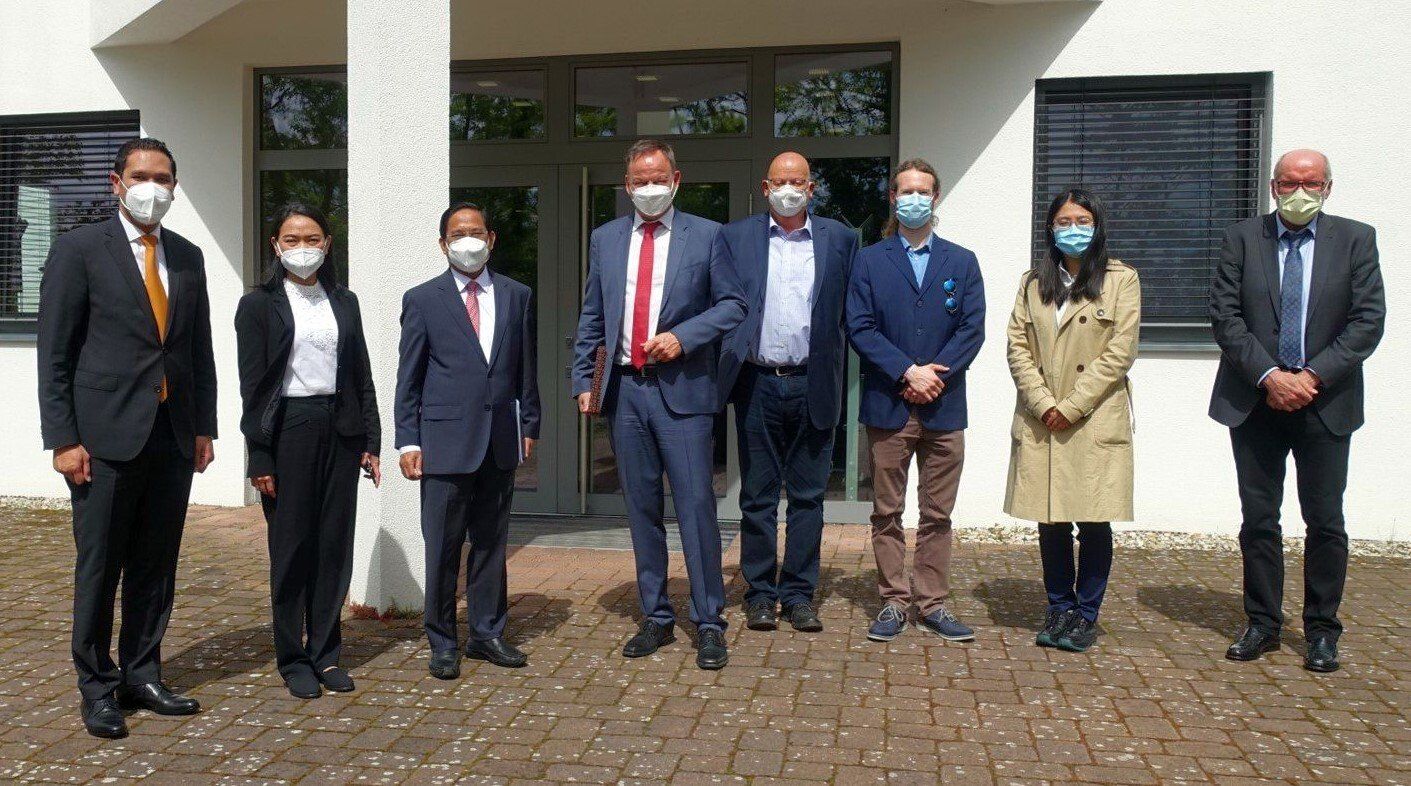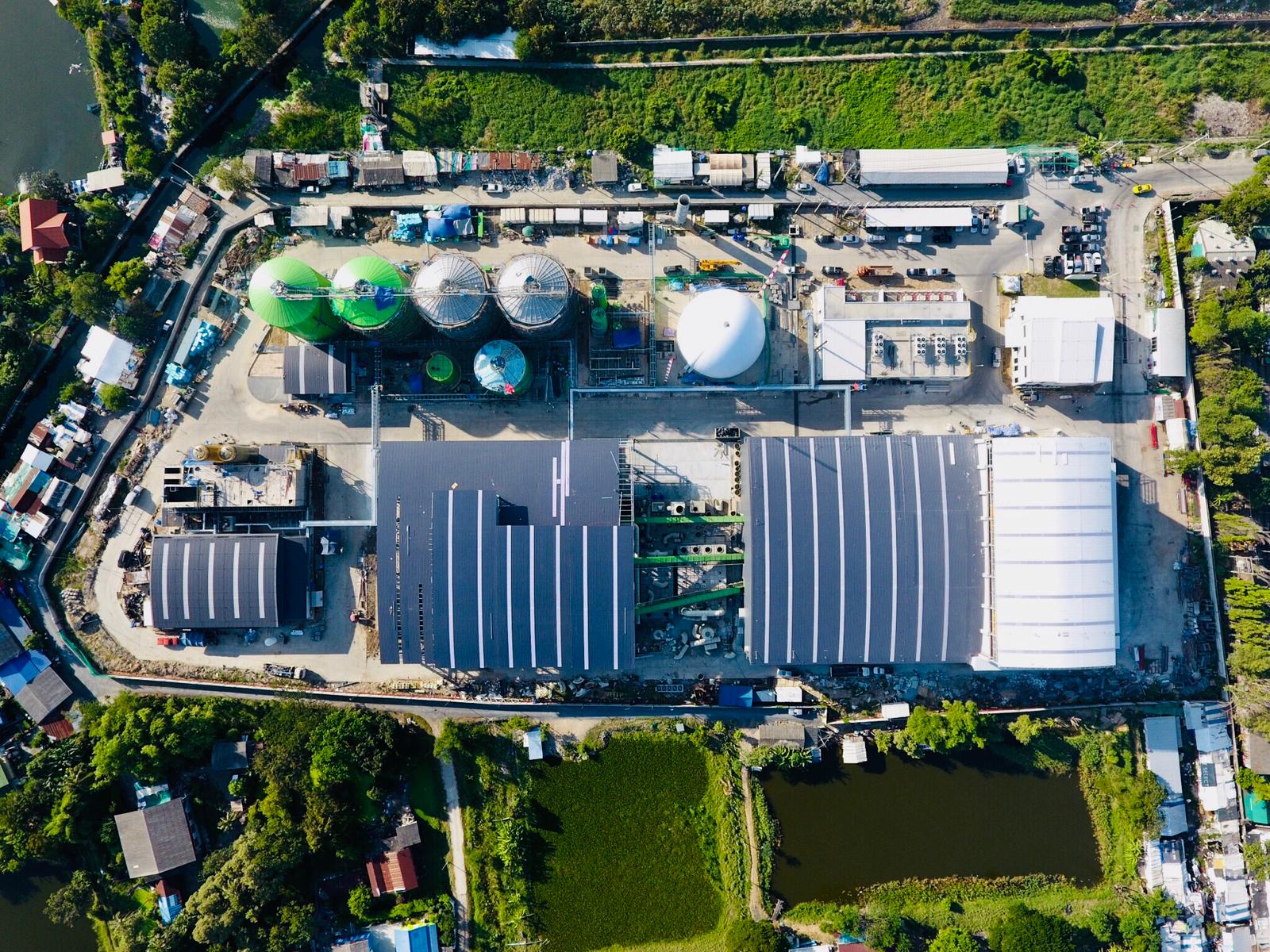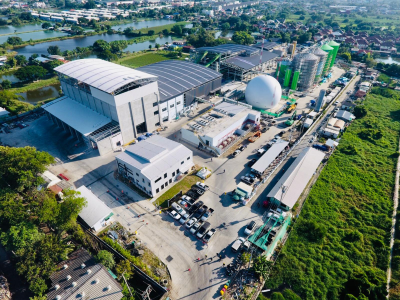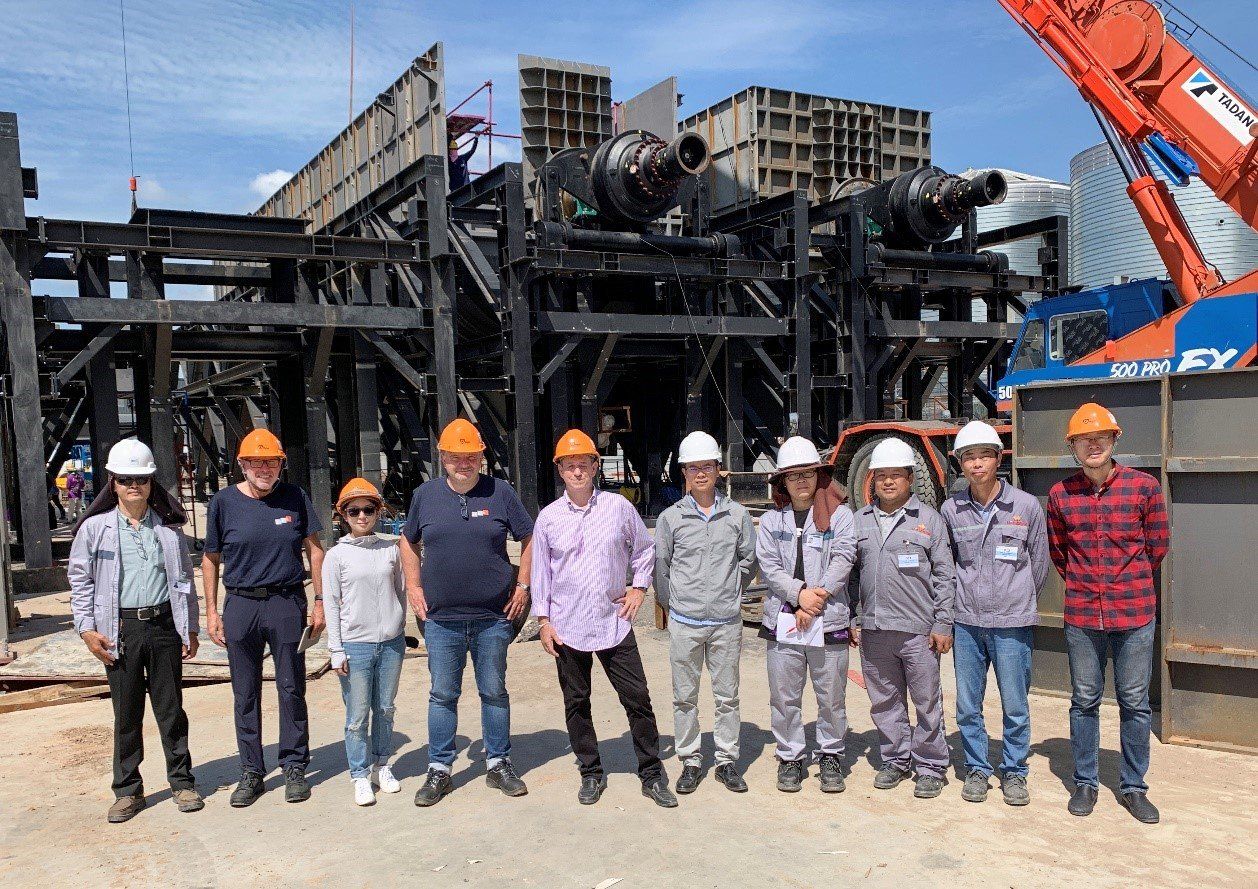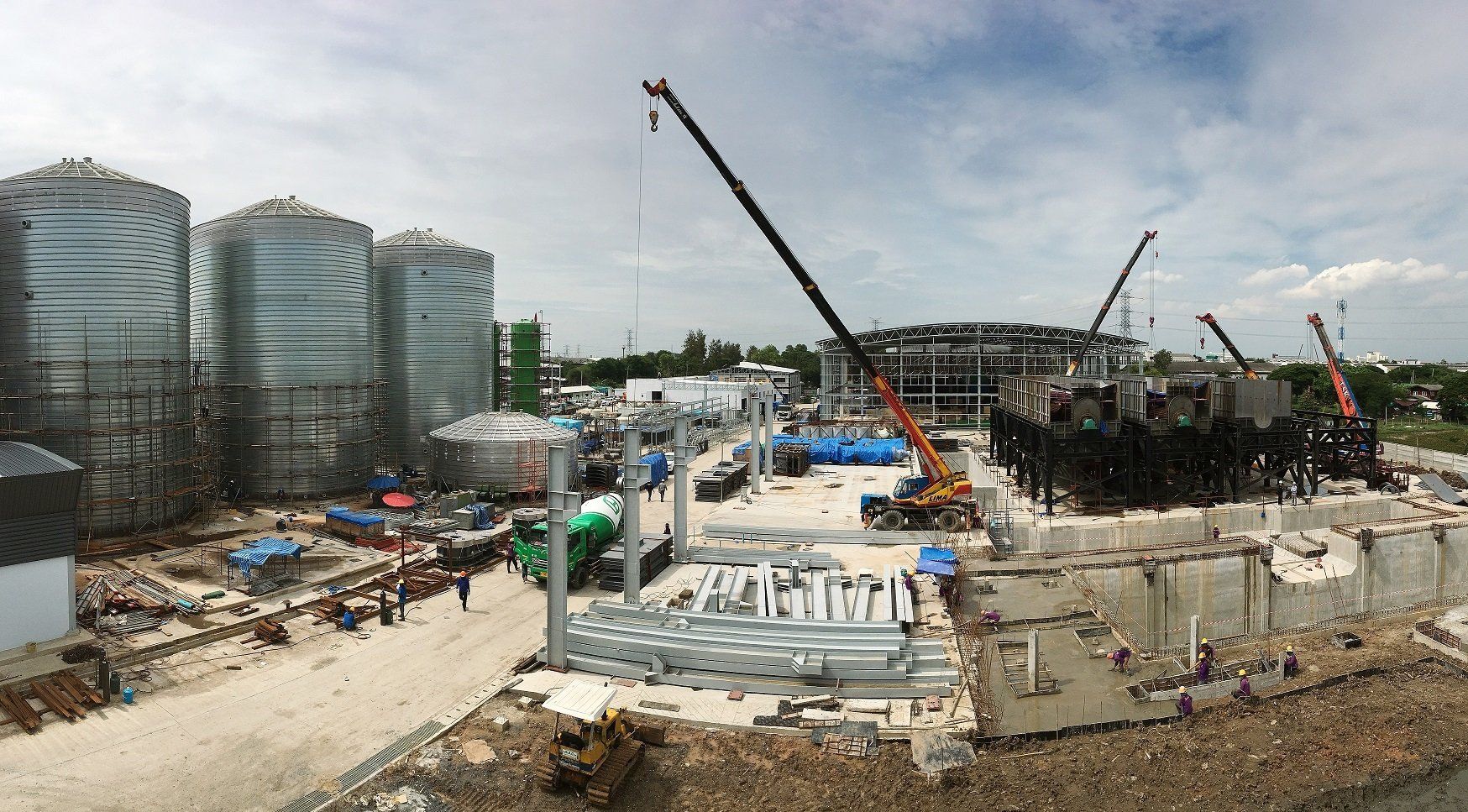Delegation of the Indonesian Embassy visits MYT plant at Kahlenberg
With 250 million inhabitants, Indonesia is one of the most populous countries in Southeast Asia and will be reorganizing its waste management in the coming years. In the south of Jakarta, in the Nambo district, one of the largest waste treatment plants in Southeast Asia is being planned. Technologically, the MYT process is way ahead there. Contracts are currently being examined and drawn up, and the chances for the MYT process are very good.
The plant technology is offered by EUWELLE from Emmendingen, a subsidiary of the Chinese WELLE Group. The WELLE Group has already built 4 plants in Asia using the MYT process, including what is currently the largest MYT plant in Bangkok.
At the request of the Indonesian Embassy in Germany, EUWELLE together with the Consul General of the Indonesian Embassy, Mr. Acep Somantri, Consul Riris Wusananingdyah and Consul Dimas Wisudawan visited the MYT plant of the Zweckverband Abfallbehandlung Kahlenberg in Ringsheim (ZAK) on May 27, 2021. The chairman of the association, district administrator Frank Scherer, as well as the managing director of the association Georg Gibis welcomed the visitors at the plant. After a tour of the plant, the concept of the Nambo plant was presented by the managing director of EUWELLE, Mr. Hubert Wienands.
The plant in the south of Jakarta will process 1,800 t/d of waste and thus dispose of the waste of about 2.3 million people. For comparison, the ZAK plant at Kahlenberg will process the waste of about 600,000 people. In the future, the waste will be used to generate electrical energy, compost and refuse-derived fuel. The substitute fuel will be sold to a leading global cement manufacturer. Up to now, coal has been the main fuel used in cement production there. The substitute fuel replaces the fossil fuel previously used.
The plant will eliminate the emissions previously caused by depositing waste in landfills. In addition to the production of substitute fuel, the avoidance of methane gas, which is produced in the landfill and mostly escapes into the atmosphere, is a further contribution to the reduction of carbon dioxide emissions.
The delegation from the Indonesian Consulate General was visibly impressed. "The plant is exemplary in terms of its technological concept and overall impression. You can't
tell that the plant has been in operation for 15 years. It is a great challenge to export this example to Indonesia" said Consul General Somantri.
"We are happy to share our know-how with interested international parties. We are pleased about the great interest in the MYT technology, especially from Asian countries, and we are happy to contribute to the development of environmentally sound waste management and climate protection" reported association chairman Scherer.
"With the patented MYT process and our know-how, we at ZAK have developed a future-proof technology that has stood for cleanliness, ecology and reliability for over 15 years. Our mechanical-biological waste treatment plant has already treated around 1.5 million tons of waste and produced around 50 million cubic meters of biogas since it went into operation, making it one of the most efficient plants in the entire industry," the district administrator went on to explain.
The Zweckverband Abfallbehandlung Kahlenberg owns patents, utility models and trademarks for technologies for the treatment and recycling of waste, which were developed and continuously refined by Managing Director Gibis and his team. This know-how of ZAK has already been applied to plants in Lille in northern France, in Bangkok, and in three plants in China.
The contract for the Nambo plant is expected to be awarded at the end of the second quarter of 2021. Construction of the plant will take around 30 months.
WELLE consortium wins a new PPP contract for recycling construction waste worth USD 82.6 million
Worldwide largest MYT plant starts operation
- separation of the anaerobic process into a hydrolysis stage and a methane formation stage
- The waste can be treated with short residence times in the hydrolysis reactor (1 to 2.5 days compared to < 15 days in single-stage processes). This leads to lower reactor volumes.
- Low pH-values in the hydrolysis reactor prevent precipitation on the waste and reduce maintenance costs.
- High solids concentration after hydrolysis dewatering of the solid discharge (55 to 60 % total solids) and thus high caloric values in the dewatered waste.
Sale of hammer mills to China
Trinational cooperation in the construc- tion of the Mechanical biological waste treatment Onnut in Bangkok - the project installation is heating up:
Successful commissioning of the kitchen waste treatment plant Haidian (Beijing), China
Project Tacheng in Xinjiang, China
Project On Nut in Bangkok, Thailand
Hong Xinglong and Long An -2 Biogas projects in China
Nanofiltration plant delivery for shopping mall at Hung Phu Residential
Quarter, Ben Tre, Vietnam
Based on this situation, EUWELLE and IMU Consult Germany have jointly developed a treatment system consisting of nanofiltration equipped with a high-performance membrane. This ensures that the treated water is fresh and salt-free. Together with our local project management partner VNWELLE the nanofiltration plant was built with selected high-quality measuring and control technology from Germany in order to ensure optimal operation regarding fresh water quality, plant availability and service life of the plant.
"The plant supplied by EUWELLE fully meets our expectations. This enables us to offer our extremely demanding customers outstanding fresh water quality. Although this was the first time that we purchased a plant from Germany, the project went smoothly. We also hope to be able to handle further projects with EUWELLE in the rapidly growing Vietnamese market in the future."




